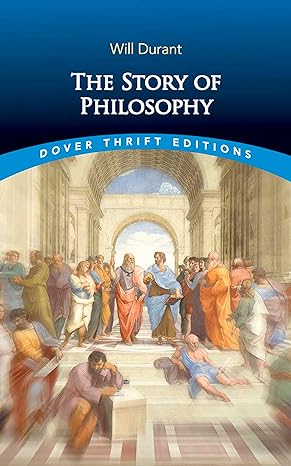Exploring the Minds of Great Philosophers: A Journey Through History
Introduction:
Throughout history, certain individuals have stood out for their profound insights, revolutionary ideas, and enduring influence on human thought. These individuals, known as philosophers, have delved into the deepest questions of existence, morality, knowledge, and reality, shaping the way we understand the world around us.
In this document, we embark on a journey through time to explore the lives, ideas, and contributions of some of the greatest philosophers who have left an indelible mark on the course of human history.
- Socrates (c. 470 – 399 BCE):
Socrates, an Athenian philosopher, is renowned for his pioneering contributions to Western philosophy. Despite leaving behind no written works of his own, his teachings were transmitted through the writings of his disciple Plato. Socrates’ method of inquiry, known as the Socratic method, involved posing probing questions to his interlocutors to stimulate critical thinking and illuminate underlying assumptions.
His philosophy centered on the pursuit of wisdom and the importance of self-examination, famously encapsulated in his maxim, “Know thyself.” Socrates’ unwavering commitment to truth and virtue ultimately led to his trial and execution, making him a symbol of intellectual integrity and moral courage.
- Plato (c. 428/427 – 348/347 BCE):
A student of Socrates, Plato went on to become one of the most influential philosophers in history. He founded the Academy in Athens, the first institution of higher learning in the Western world. Plato’s philosophical works, including dialogues such as “The Republic” and “The Symposium,” explore a wide range of topics, from ethics and politics to metaphysics and epistemology.
Central to Plato’s philosophy is the theory of Forms, which posits that the material world is a mere reflection of eternal, unchanging ideas or Forms. His allegory of the cave vividly illustrates the journey from ignorance to enlightenment, emphasizing the transformative power of knowledge and philosophical inquiry.
- Aristotle (384 – 322 BCE):
Another towering figure in ancient philosophy, Aristotle was a student of Plato and the tutor of Alexander the Great. His contributions to virtually every area of human knowledge, including logic, ethics, politics, metaphysics, and natural science, have earned him the title of “the Philosopher” in Western tradition. Aristotle’s approach to philosophy was systematic and empirical, emphasizing observation and analysis as the foundations of understanding.
His concept of teleology, or the study of purpose and final causes, informed his ethical theory of virtue ethics, which emphasizes the cultivation of moral character and the pursuit of eudaimonia, or flourishing. Aristotle’s works, such as “Nicomachean Ethics” and “Metaphysics,” remain seminal texts in the history of philosophy.
- René Descartes (1596 – 1650):
Often regarded as the father of modern philosophy, Descartes played a pivotal role in the development of rationalism and the scientific revolution of the 17th century. His method of doubt, articulated in his famous phrase “Cogito, ergo sum” (I think, therefore I am), laid the foundation for his quest for indubitable knowledge.
Descartes sought to establish a secure foundation for human knowledge by subjecting all beliefs to rigorous skepticism and deducing truths from self-evident axioms. His dualistic philosophy posited a sharp distinction between mind and body, setting the stage for debates about the nature of consciousness and the relationship between mind and matter.
- Immanuel Kant (1724 – 1804):
A towering figure in modern philosophy, Kant sought to reconcile empiricism and rationalism while revolutionizing ethics and epistemology. His “Critique of Pure Reason” aimed to delimit the scope and limits of human knowledge, distinguishing between phenomena (the world as it appears to us) and noumena (the world as it is in itself).
Kant’s moral philosophy, articulated in works such as the “Groundwork of the Metaphysics of Morals” and the “Critique of Practical Reason,” centered on the concept of the categorical imperative, which asserts that moral principles must be universalizable and grounded in reason. Kant’s influence extends far beyond philosophy, shaping diverse fields such as ethics, political theory, and aesthetics.
Conclusion:
The philosophers discussed in this document represent only a fraction of the rich tapestry of human thought and inquiry that has unfolded over millennia.
From ancient Greece to the modern era, these thinkers have grappled with fundamental questions about existence, knowledge, morality, and reality, leaving behind a legacy of wisdom and insight that continues to inspire and challenge us today.
As we reflect on their contributions, we are reminded of the enduring power of philosophy to illuminate the human condition and deepen our understanding of ourselves and the world we inhabit.

